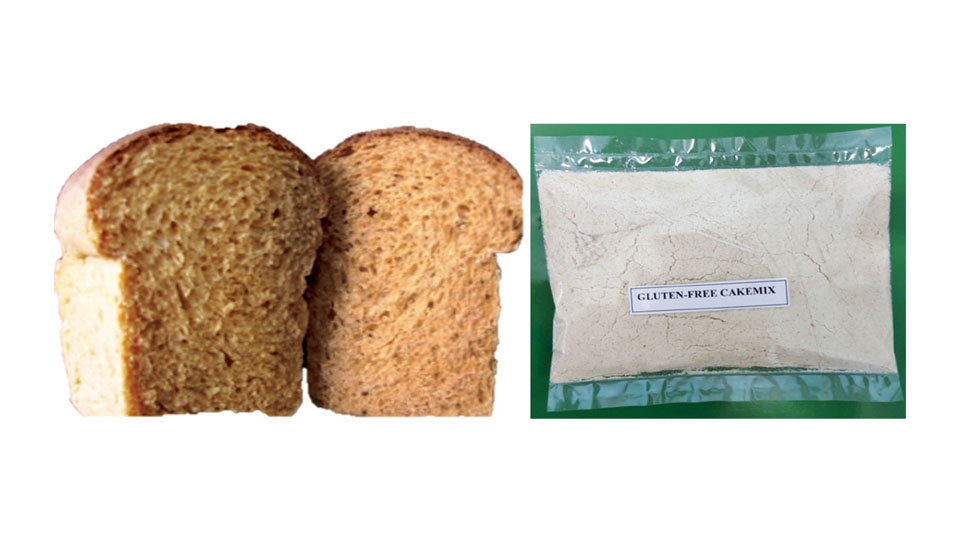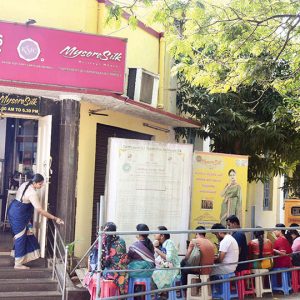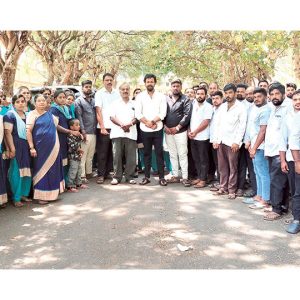Buckwheat-based gluten-free cake mix, spice bread, fibre-enriched rusk
Mysore/Mysuru: The CSIR-Central Food Technological Research Institute (CFTRI) released three new technologies on day-2 (Tuesday) of the ongoing ‘One Week One Lab’ (OWOL) campaign.
Former World Health Organisation (WHO) Chief Scientist and Chairperson of M.S. Swaminathan Research Foundation Dr. Sowmya Swaminathan, who was the chief guest, released the technology of spice bread. Gluten-free cake mix and fibre-enriched rusk were released by CFTRI Director Dr. Sridevi Annapurna Singh and West Bengal Electricity Regulatory Commission Chairperson Dr. M.V. Rao.
Gluten-free cake mix
Packaged bakery premixes provide a convenient solution for consumers, food service operations and industrial-scale bakeries by saving time and simplifying ingredient selection.
One popular type is cake mix, which contains essential ingredients like flour, sugar, shortening, leavening agent, natural colour, and flavouring. The premix only requires the addition of water or milk, eggs and cooking oil, enabling quick and easy cake production. For individuals with gluten sensitivities, gluten-free cake mix is available, ensuring it contains less than 20 parts per million (ppm) of gluten. It includes all the necessary ingredients to make cakes, muffins, cupcakes, or pastries without gluten-related issues. To improve nutritional quality, the CFTRI has developed a buckwheat-based gluten-free cake mix specifically for individuals with celiac disease. This alternative is rich in protein, fibre and minerals, meeting the demand for healthier and convenient food options. The production of premixes requires specific equipment, such as a hammer mill for ingredient processing, a planetary mixer for thorough mixing, an electronic balance for precise measurements and a sealing machine for packaging. Entrepreneurs can invest around Rs. 7,52,370 to produce this innovative product.
Spice bread
The functional properties of wheat-based food formulations can be enhanced to address lifestyle disorders. Natural ingredients found in India have shown potential in improving health conditions and combating immune-related diseases. Incorporating these functional elements into bakery products, like bread, has become popular for their ability to reduce the risk of chronic diseases.
A combination of functional ingredients has been tested to develop bread with anti-inflammatory properties. Histopathology assays have shown that this bread exhibits effects similar to standard anti-immunomodulatory drugs, indicating significant anti-inflammatory potential and the ability to enhance the immunological response to inflammation.
To produce bread with an enhanced anti-inflammatory response, a ready formulation and specific processing conditions are recommended. The raw materials include a blend of boosting ingredients and standard bread-making ingredients. The total project cost amounts to Rs. 9.4 lakh.
Fibre-enriched rusk
Rusk is a hard, dry biscuit or twice-baked bread that is commonly consumed with tea or as a snack. It is sold in bakeries, tea shops and supermarkets. The samples are typically rectangular or semi-circular in shape, with a golden-brown crust, brown crumb colour and a crisp texture. They have a pleasant aroma and can be stored for up to three months in a cool, dry place.
The fibre-enriched rusk is made from whole grains, providing increased fibre and protein content compared to regular rusk. Its production can be easily adopted by existing units. The potential for rusks in India is significant, offering various advantages.
This product category can serve as a means to promote nutrition, particularly for the general public or targeted populations. Additionally, fibre-enriched rusk contributes to the health/therapeutic product category.
The major equipment required includes a flour sifter, mixer, moulding machine, baking oven, cooling conveyor, slicer and packaging machine. The total project cost is Rs. 9.4 lakh.








Recent Comments